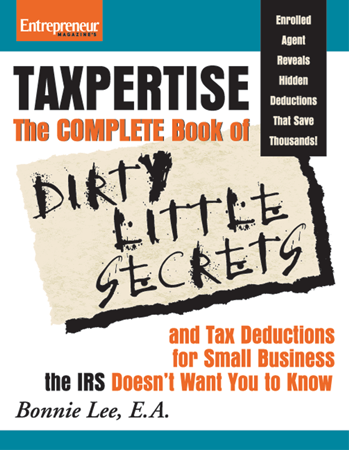If you play the stock market, it is wise to know about the tax consequences of your securities transactions.
Capital Gains Tax First of all, any profit you enjoy from the sale of a stock held for at least a full year is taxed at the long term capital gains rate, which is lower than the rate applied to your other taxable income. If you are in the 10%-15% tax bracket your rate on capital gains is 0%. That’s right, zero. The 15% capital gains rate applies to those in the 25% tax bracket. Capital gains peaks out at 20% for higher income taxpayers. If the stock was held for less than a year, ordinary income tax rates apply. It is therefore beneficial tax-wise to hold the investment for longer than a year.
Dividends. The capital gains rate applies to “qualified” dividends. For dividends to be classified as “qualified” they must be paid by a U.S. corporation or a qualified foreign corporation and the holding period of the stock must be more than 60 days. There are plenty of other exceptions and definitions so check with your broker or tax advisor to see if the dividends for your stock holdings are “qualified” or not. Dividends on stock held in a qualified retirement plan are not taxable income.
Congress enacted the lower capital gains rate to drive investment. After all, most tax laws are passed as a form of directing social behaviors.
The Wash Rule Many investors benefit from selling a stock in a losing position to offset a gain, then turn around and buy the stock right back.
Well, the IRS will not allow an investor to claim a capital loss if you sell a stock and buy it back within 30 days. It is called the “wash rule” and does not allow for a capital loss. If you sell a stock and buy it back within 30 days, the IRS will disallow the capital loss and you will lose the offset.
Capital Losses One of the big limitations in stock investing is the amount of losses you are allowed to deduct on your tax return. If you sell stocks at a loss, you may deduct only $3,000 in losses per year. The remainder of the loss is carried forward to future years. You may apply capital losses against capital gains in the current and future years to net out the overall profit or loss.
Deductible Investment Expenses A tax deduction often overlooked by investors is the cost of management fees paid to brokers, usually for management of mutual fund accounts or for advisory services. You may deduct these fees as an investment expense on Schedule A of your tax return. Some brokerage 1099s or year-end statements will state the total paid for the year. But many do not. You may have to call your broker to find out how much you paid. Be sure to provide this information to your tax pro.
Stock Sales When determining your profit from a stock sale, it’s important to understand not only the formula but the meaning of the variables in the formula. Certain circumstances applied to the variables can reduce your tax liability when you sell. Many taxpayers believe they must pay taxes on the full amount of the check they receive from the sale. That is not true. You can subtract your basis.
The formula is: Sales Proceeds – Basis = Taxable Profit or Deductible Loss.
Sales proceeds can be reduced by commissions paid to the broker.
Basis is the cost of the stock plus any reinvested dividends and commissions paid for acquisition. If you inherited the stock, the basis is the fair market value of the stock on the date of the decedent’s death or the alternate valuation date. If the stock was received as a gift, the basis is the lower of the fair market value or the basis of the donor at the time the gift was made.
Audit Taxpayers oftentimes forget about a stock sale when compiling their income tax return. This results in a CP-2000 letter from the IRS. The letter is about eight pages long and somewhere in the middle is a listing of omitted items and a calculation of the tax liability on those items. If you receive one showing an omitted stock sale, don’t just pay the tax bill. The IRS only knows about the stock sale; they have no clue as to what your basis in the stock is. Remember the formula earlier? You may actually have taken a loss on the stock and that means no tax liability whatsoever. In fact, you may be entitled to a refund. So call the phone number on the front of the letter and let them know that you will amend that tax return. The IRS may instruct you to complete a Schedule D declaring the details of the stock sale and ask you to fax it to them. They will adjust the tax due (if any) accordingly.
However, beginning January 1, 2011 as a part of the Emergency Economic Stabilization Act of 2008, brokerage firms are required to report the cost basis and gain/loss information to the IRS on their form 1099. This streamlines the tax preparation process considerably.



